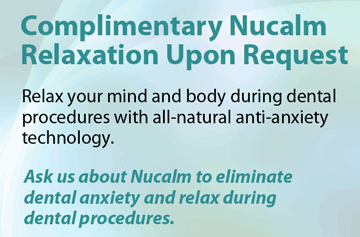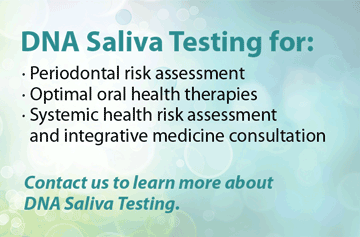Avoid & Reverse Cognitive Decline
 “Alzheimer’s disease can be prevented, and in many cases its associated cognitive decline can be reversed.” ― Dale Bredesen, MD, The End of Alzheimer’s: The First Program to Prevent and Reverse Cognitive Decline
“Alzheimer’s disease can be prevented, and in many cases its associated cognitive decline can be reversed.” ― Dale Bredesen, MD, The End of Alzheimer’s: The First Program to Prevent and Reverse Cognitive Decline
What is dementia?
Mild decline in memory is normal as we age, for example, forgetting someone’s name or where we placed something. This can happen more when we are under stress.
Dementia is defined as a decline in brain function that goes beyond normal aging. It is a decline that significantly interferes with a person’s daily life. Nearly a third of all adults aged 85 and older have some form of dementia, but recent studies have demonstrated dementia can be avoided and reversed by removing inflammatory factors in your life (for example, toxins, inactivity/low exercise, poor nutrition, obstructive sleep apnea/poor oxygenation, gum disease, and gut disease.)
Various neurodegenerative disorders and factors contribute to the development of dementia. The five most common forms of degenerative dementia are Alzheimer’s disease, Lewy body dementia, frontotemporal dementia, vascular dementia, and a combination of two or more of the above. Vascular dementia is caused by damage to blood vessels in the brain that interrupts blood flow and oxygen to the brain. The other forms of dementia are associated with an abnormal buildup of proteins between nerve cells in the brain.
If degenerative dementia has begun, you are likely to experience poor performance at work, getting lost, finding it difficult to concentrate, the inability to remember something you just read or viewed, and forgetting the names of close family members and friends. This can provoke anxiety. If this is occurring, you should call your primary physician for a cognitive assessment consultation or referral. Early diagnosis will lead to better management and treatment that slows down its progress, and in the case of the therapeutic protocol used by Dr. Dale Bredesen can lead to reversal of Alzheimer’s.
Because physicians are slowly catching up with Dr. Bredesen’s studies and recommendations, Encino dentist Dr. Isaac Comfortes recommends you read The End of Alzheimer’s: The First Program to Prevent and Reverse Cognitive Decline and become an advocate for your own and loved ones’ health.
“Alzheimer’s has affected members of my own family, and I am doing all I can to eradicate inflammation in my family’s life and to educate my patients at Total Health Dentistry of Encino,” says Isaac Comfortes, DDS.
Is there proof that oral health affects dementia?
Various studies over the last two decades have revealed bits and pieces of the dementia puzzle. At this stage, there is evidence that:
- People with chronic gum disease are more likely than people without the condition to develop degenerative dementia.
- Cognitive decline occurs faster among dementia patients who have chronic gum disease.
- Elimination of gum disease, prevention of tooth loss, and maintaining full dental function, even with dentures, improves the dementia patient’s ability to eat nutritious foods and reduce systemic inflammation that damages the body’s organs, including the brain.
- Optimal oral health that eliminates the risk of gum disease and dental decay can slow down not only Alzheimer’s but also vascular dementia.
- You do not have to have a family history of Alzheimer’s to be impacted by dementia. Bacteria associated with chronic gum disease can travel from the mouth to the brain, and these bacteria increase production of amyloid beta, a component of the amyloid protein buildup that occurs between brain neurons in Alzheimer’s and Lewy body patients.
“Knowing that the majority of patients with Alzheimer’s have gum disease when their dementia is diagnosed is an adequate reason to do your utmost to eliminate and prevent gum inflammation,” says Dr. Comfortes. “As healthcare providers we want to make sure our patients understand what we can do to help them prevent dementia, maintain total oral health before the possible onset of dementia, and what we can do to slow down disease progression and reverse it once it has begun. We also have the responsibility of educating our patients about the serious health consequences gum inflammation has on many other inflammatory disease conditions, including heart disease and diabetes. They are all related; in fact, diagnosable insulin resistance is a precursor to dementia, as well as to diabetes.”
Total Health Dentistry of Encino focuses on achieving oral health that supports brain and whole-body wellness.
Gum inflammation affects more than the brain. It is a known contributor to cardiovascular disease, heart attacks, and strokes. You owe it to yourself to regularly see a dentist and hygienist who genuinely believe patients deserve the best of integrated oral healthcare. Our Dental Cleanings and Periodontal Care include a review of your medical and dental history and plenty of time to learn about you, inform you, and answer your questions.
We are one of only a few dental practices in southern California to have studied the fundamentals of the Dr. Dale Bredesen’s Alzheimer’s program. Our dentist, Isaac Comfortes, DDS, has enrolled in the Apollo Health certification program for dentists to become certified in dementia care in collaboration with medical physicians.
At Total Health Dentistry of Encino, we offer oral DNA saliva testing, and the Perio Protect System, which has been proven in clinical studies to kill harmful oral bacteria within 72 hours.
Patients drive here from throughout the Los Angeles area and even beyond to ensure they and their loved ones receive our personalized, health-centered dental care. Give us a call today!





 The general, cosmetic and reconstructive dental practice of Encino dentist Dr. Isaac Comfortes is devoted to restoring optimal oral health, which supports whole body health and enhances the natural beauty of smiles.
The general, cosmetic and reconstructive dental practice of Encino dentist Dr. Isaac Comfortes is devoted to restoring optimal oral health, which supports whole body health and enhances the natural beauty of smiles.